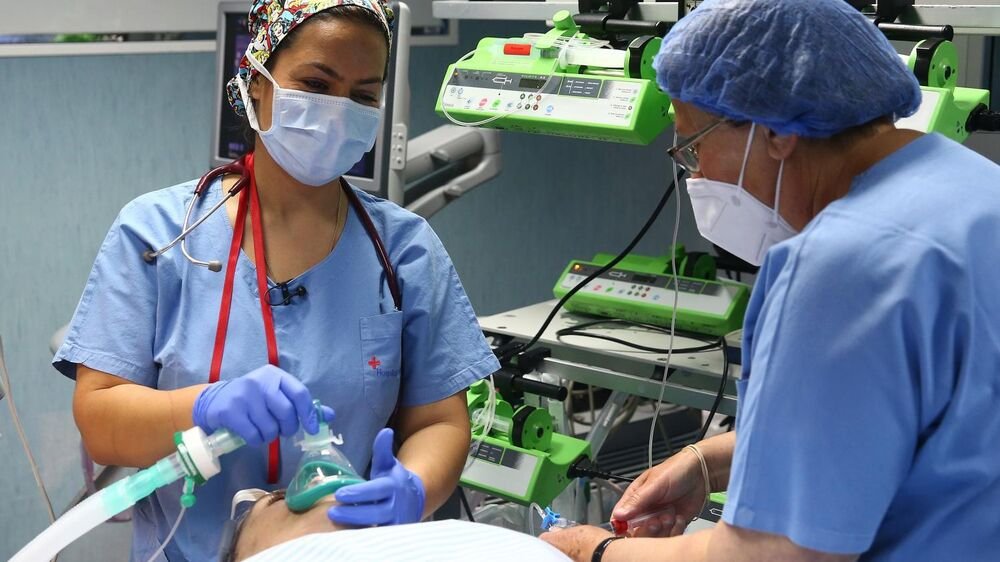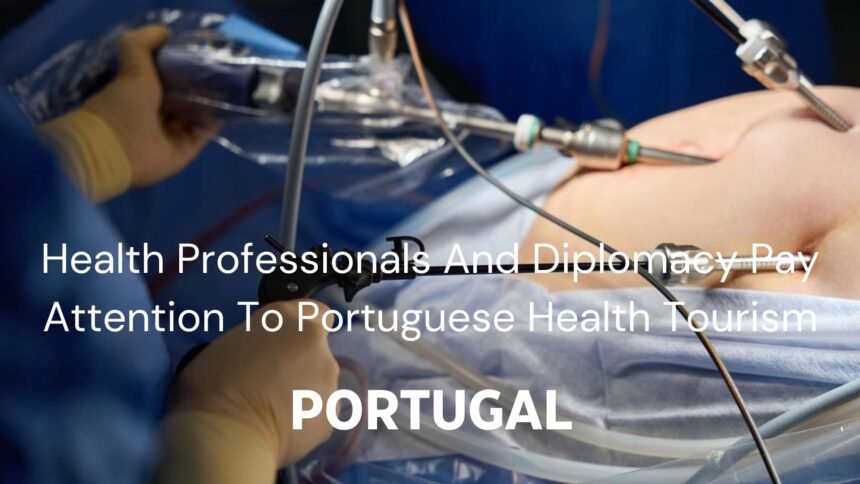Many Portuguese citizens travel abroad for medical treatments. Health professionals and diplomacy are now paying attention to Portuguese health tourism. They are attracted by low prices and promises of fast results. Common procedures include cosmetic surgery, dental treatments, hair implants, and bariatric surgery.
Read More About: Pedro Nuno Says PS Knows It Must Be United In Supporting A Presidential Candidate
Portuguese Health Tourism

Popular destinations include Turkey, Venezuela, and Brazil. However, these treatments can have serious risks. The lack of proper follow up care can lead to complications. In some cases, patients experience infections, poor surgical outcomes, or even life threatening conditions. They may struggle to find proper care when things go wrong without a reliable support system.
Real Cases Of Medical Complications
The clinical director of the Portuguese Face Institute David Ângelo has seen many cases of failed surgeries. He shared the case of a patient who went to Venezuela for orthognathic surgery. This kind of surgery corrects bone deformities in the face and jaw.
Unfortunately, the patient suffered severe complications. He had to be transported back to Portugal for emergency treatment. Ângelo said that the risks are often not worth the small financial savings.
Other medical professionals report similar cases. Some patients develop infections due to poor hygiene standards. Others experience issues with improperly placed implants or surgical errors.
These complications often require extensive corrective procedures which lead to higher overall costs and prolonged recovery times. In extreme cases, irreversible damage may occur and affects both physical health and emotional well-being.
Government And Diplomatic Awareness
The Ministry of Foreign Affairs is monitoring this situation. Portuguese embassies in Turkey and Venezuela have not received direct complaints. However, they are aware of the risks. The Portuguese Communities Portal has issued a warning about medical tourism.
The page on Turkey explains that it is a popular destination for medical treatments. However, it warns that the Portuguese Embassy in Ankara cannot provide legal or financial assistance if problems arise.
The embassy advises Portuguese citizens to consult a doctor before traveling. It recommends learning about the risks, benefits and costs. It also suggests ensuring that clinics are accredited. Patients should ask for a written agreement detailing the treatment and follow up care.
Many patients do not realize that foreign healthcare regulations may differ significantly from those in Portugal. Medical malpractice claims can be difficult to pursue in some countries.
This leaves patients with little recourse if they experience complications. The government urges travelers to take all necessary precautions before undergoing procedures abroad.
The Role Of Health Authorities
The Health Regulatory Authority (ERS) does not have control over private medical trips. However, it stresses the importance of safe conditions and full patient awareness. Patients have the right to NHS healthcare if they suffer complications after returning to Portugal.
The Integrated Responsibility Centre for the Surgical Treatment of Obesity (CRITCO) at ULS São José in Lisbon often treats such patients. Many have undergone bariatric surgery in Turkey, Spain or Brazil without proper evaluation.
After coming back to Portugal, they go to their family doctors. These doctors then refer them to CRITCO. The center provides multidisciplinary follow-up. It also conducts health assessments. The success of bariatric surgery depends on preparation and aftercare.
Medical professionals emphasize that pre surgical evaluation is crucial. Proper screening helps determine if a patient is a good candidate for a procedure. It also allows for discussion of potential risks and necessary lifestyle changes.
Patients may face serious health issues post-surgery without these steps. Portuguese health authorities continue to stress the importance of informed decision-making.
Warnings From Medical Professionals
President of the Dentists Association Miguel Pavão warns about cheap medical packages outside the EU. These packages offer quick and miraculous treatments. Many patients are drawn in by before-and-after images. However, they do not understand the process or risks. Some treatments lead to serious problems.
Dental tourism has become a growing concern in particular. Some foreign clinics offer full mouth restorations in just a few days. This may seem convenient but proper dental work often requires multiple appointments and healing periods. Rushing the process can result in long-term damage to gums and teeth.
Another medical professional Carlos Cortes highlights another issue. Complications can happen anywhere. However, some clinics abroad lack the resources to fix them. When this happens patients must seek help in Portuguese hospitals. Doctors in Portugal may struggle because they do not know the procedures used abroad.
Lack of documentation is another problem. Many patients return to Portugal without clear medical records from their foreign procedures. This makes it difficult for Portuguese doctors to assess the situation and provide the best possible care. Medical professionals urge individuals to request detailed records and ensure they understand all aspects of their treatment.
Health tourism is tempting due to lower prices. However, the risks are high. Many patients suffer complications because of a lack of proper follow-up. Portuguese health professionals and diplomats are paying close attention to the issue.
Patients should be fully informed before choosing to undergo treatments abroad. Consulting a doctor and ensuring the clinic is accredited can help reduce risks. However, in many cases cheap medical care abroad can end up costing much more in the long run.
Safety should be the top priority. Patients must weigh the potential savings against the possible consequences. A well-researched decision can prevent unnecessary health risks and financial burdens. Portuguese authorities continue to advise caution and hope to reduce the number of medical complications caused by unsafe health tourism.






